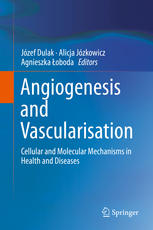

Most ebook files are in PDF format, so you can easily read them using various software such as Foxit Reader or directly on the Google Chrome browser.
Some ebook files are released by publishers in other formats such as .awz, .mobi, .epub, .fb2, etc. You may need to install specific software to read these formats on mobile/PC, such as Calibre.
Please read the tutorial at this link: https://ebookbell.com/faq
We offer FREE conversion to the popular formats you request; however, this may take some time. Therefore, right after payment, please email us, and we will try to provide the service as quickly as possible.
For some exceptional file formats or broken links (if any), please refrain from opening any disputes. Instead, email us first, and we will try to assist within a maximum of 6 hours.
EbookBell Team

0.0
0 reviewsThe book presents the overview of the current knowledge in some fields of vascular biology, addressing cellular and molecular aspects of blood-vessel formation and their role in health and disease. The major factors involved in the formation of blood vessels are presented by scientists actively involved in this area of research. Special emphasis is put on the presentation of various molecular mechanisms not addressed in similar works to date. The book is divided into three parts. The first part describes the cells and mediators in angiogenesis. The significance of various populations of potential endothelial progenitors is particularly highlighted. The chapters of the second part focus on molecular mechanisms, with special emphasis on the role of hypoxia, gasotransmitters and reactive oxygen species as well as microRNAs in regulation of angiogenic processes. In the third part, the pathological aspects of disturbed – aggravated or impaired – vascularization are discussed and new modalities for potential therapies are presented. The book is intended for scientists and PhD students in the fields of vascular biology and cancer research. It may be of interest for medical professionals in the fields of cardiovascular disease, diabetes, oncology and rheumatoid arthritis.